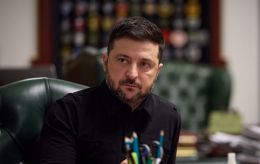Hungary asks EU for more money to cut off Russian gas
 Hungary wants more money from Brussels to cut off Russian gas (Getty Images)
Hungary wants more money from Brussels to cut off Russian gas (Getty Images)
Small landlocked states, including Hungary, require increased European Union funding to reduce their reliance on Russian gas, according to Hungary's Deputy Secretary of State for Energy Security, Csaba Marosvári.
"In our region there are small countries, small markets, few significant market players, lack of capital, these kinds of infrastructure and de-bottlenecking projects can cost up to hundreds of millions of euros - in fuel market terms it is not feasible to fulfill," Marosvári said at the Gastech conference in Houston.
About two-thirds of Hungary’s gas imports come from Russia, but the country, along with some of its neighbors, faces increasing pressure to diversify its supplies and move away from Russian energy following Moscow's invasion of Ukraine in 2022.
According to Marosvári, European Commission initiatives to fund green energy projects aimed at ending dependency on fossil fuels have left some countries behind.
"As a result of the war in Ukraine, we received stronger and stronger pressure to diversify faster away from Russian fuels, but they deny the funds to be able to do that," he added.
Marosvári said that Hungary has signed several short-term LNG (liquefied natural gas) agreements with Azerbaijan and Türkiye to help reduce its reliance on Russian sources. He also expects Türkiye and Greece to become more significant suppliers of pipeline gas and LNG in the future.
"You don't put all your eggs in one basket, this is true of natural gas supply as well," Marosvári said.
Hungary receives 4.5 billion cubic meters of gas per year from Russia under a 15-year agreement signed in 2021.
"The Russians are delivering according to the contracts, for us they are reliable but this does not mean we have to stick to one single source, so we have been conducting a diversification strategy for supply," Marosvári added.
The EU is striving to reduce its dependence on Russian gas. However, countries like Hungary, Austria, and Slovakia continue to receive gas through a pipeline that runs via Ukraine.
For more on potential gas supplies after 2024, read RBC-Ukraine's article "Russia aims to maintain gas transit to EU through Ukraine: What’s in it for Putin and Gazprom?"

